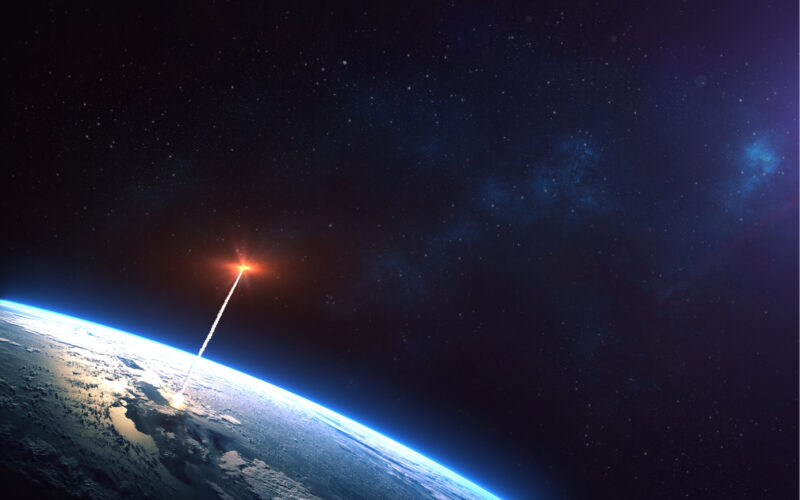The crew of the International Space Station (ISS) was put on high alert on November 15, 2021, after a Russian Anti-Satellite (ASAT) test created a field of orbital debris that could potentially endanger the station.
The test saw Russia destroy one of its own satellites. The target was reportedly an old spy satellite called Kosmos-1408, which was launched on September 16, 1982. Weighing more than a tonne, the Tselina-D electromagnetic intelligence satellite was only operated for about six months and had been inactive ever since.
The destruction of the spacecraft created debris in low space orbit. As a consequence, the crew of the ISS, currently composed of four NASA astronauts, a German astronaut and two Russian cosmonauts, rushed to safety.
NASA astronauts Raja Chari, Tom Marshburn, Kayla Barron, and European Space Agency astronaut Matthias Maurer boarded the SpaceX Crew Dragon, while Russian cosmonauts Anton Shkaplerov and Pyotr Dubrov and NASA astronaut Mark Vande Hei took a seat on board the Soyuz space vehicle.
The trajectory of the ISS, which passed by the debris field every 90 minutes, was closely monitored. After three passes, the situation was deemed safe and the crew returned to the station.
The United States accuses Russia of “reckless” behavior
The United States Secretary of State Antony Blinken denounced what he defined as a “reckless” act from Russia.
“This test has so far generated over fifteen hundred pieces of trackable orbital debris and will likely generate hundreds of thousands of pieces of smaller orbital debris,” Blinken said in a press statement. “The events of November 15, 2021, clearly demonstrate that Russia, despite its claims of opposing the weaponization of outer space, is willing to jeopardize the long-term sustainability of outer space and imperil the exploration and use of outer space by all nations through its reckless and irresponsible behavior.”
Similarly, NASA Administrator Bill Nelson condemned the test.
“With its long and storied history in human spaceflight, it is unthinkable that Russia would endanger not only the American and international partner astronauts on the ISS, but also their own cosmonauts,” Nelson said in a NASA press release. “Their actions are reckless and dangerous, threatening as well the Chinese space station and the taikonauts on board.”
The @Space_Station crew is routinely performing operations according to the flight program.
The orbit of the object, which forced the crew today to move into spacecraft according to standard procedures, has moved away from the ISS orbit.
The station is in the green zone. pic.twitter.com/MVHVACSpmT
— РОСКОСМОС (@roscosmos) November 15, 2021
The Russian space agency, Roscosmos, attempted to reassure its international partners in a statement where it emphasized that “the main priority has been and remains to ensure the unconditional safety of the crew”.
The statement continued: “The Russian space industry is a pioneer in manned space flights and has been working on a permanent basis with international partners in this area for many decades. Dozens of joint flights to the Mir orbital station and the International Space Station have created conditions for reliable cooperation and international cooperation even in the most difficult situations.”
With space activity increasing, debris orbiting the planet or falling back into the atmosphere is becoming a legitimate concern. In May 2021, China was criticized by other spacefaring nations after parts of the Long March 5B rocket that carried the first of the three elements of the Chinese Space Station fell back uncontrollably towards the Earth surface.
During an Airbus Summit on September 22, 2021, Drew Shindell, professor of Earth Science at Duke University in North Carolina, criticized the lack of attention given by nations and companies in keeping the Earth orbit clean. “Testing out a satellite destroyer and blowing one up in space carries no penalty,” Shindell commented. “It’s so much easier to blow something up than to clean up all the pieces.”

